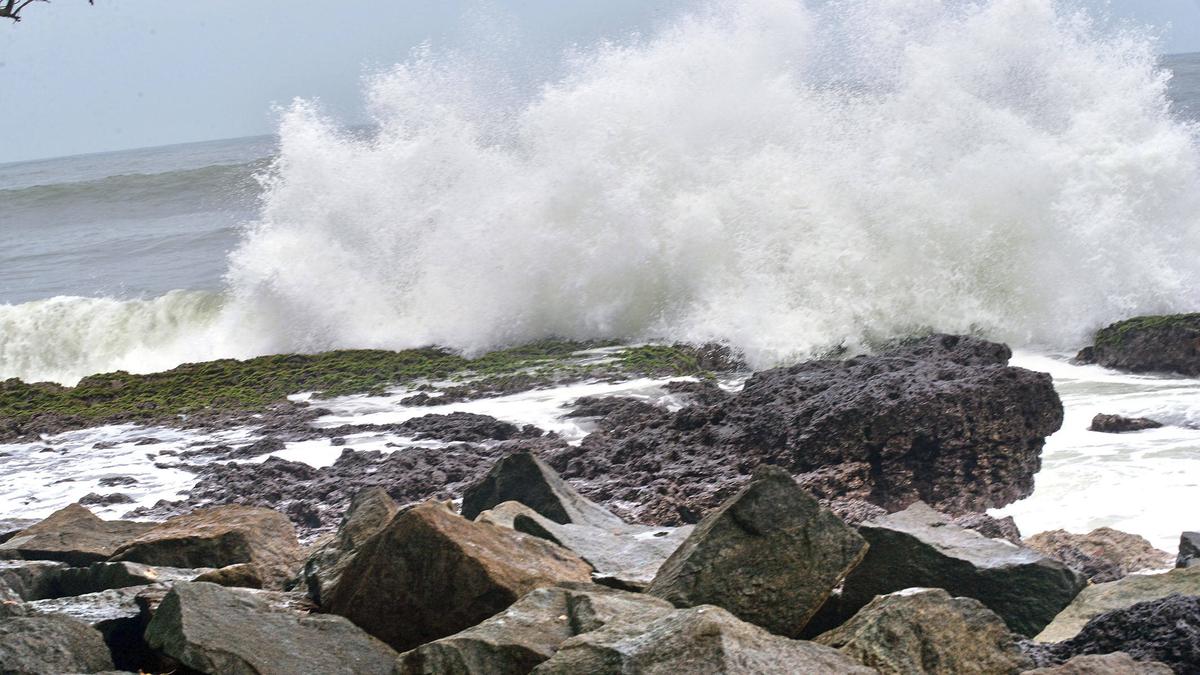
Kallakkadal alert: Coastal parts of Kerala, south Tamil Nadu warned of likely ocean swells
The Hindu
Alerts issued for 'kallakkadal' phenomenon in Thiruvananthapuram, Kerala and southern Tamil Nadu, advising safety measures for rough seas
The coastal areas of Kerala and southern Tamil Nadu are likely to experience the 'kallakkadal' phenomenon – the sudden swell of the seas causing rough waves – from 2.30 a.m. on May 4 (Saturday) to 11.30 p.m. on May 5 (Sunday), weather agencies said, issuing alerts to fishermen and coastal residents.
"There is a possibility of rough seas due to high waves of 0.5 to 1.5 metres during this period," according to the Indian National Centre for Ocean Information Services (INCOIS).
INCOIS, the central agency that issues weather warnings for fishermen in the country, advised people to safely moor their fishing vessels in the harbour.
In a statement, the Kerala State Disaster Management Authority (KSDMA) and other weather agencies advised people to stay away from danger zones as per the instructions of the authorities, as the rough sea conditions are likely to intensify.
"Keeping a safe distance between boats can avoid the risk of collision. The safety of fishing equipment should be ensured," they said in a statement here.
The agencies also advised people to avoid trips to the beach and completely stay away from activities at sea.
The term 'kallakkadal' literally means a sea that comes suddenly like a thief.

“Writing, in general, is a very solitary process,” says Yauvanika Chopra, Associate Director at The New India Foundation (NIF), which, earlier this year, announced the 12th edition of its NIF Book Fellowships for research and scholarship about Indian history after Independence. While authors, in general, are built for it, it can still get very lonely, says Chopra, pointing out that the fellowship’s community support is as valuable as the monetary benefits it offers. “There is a solid community of NIF fellows, trustees, language experts, jury members, all of whom are incredibly competent,” she says. “They really help make authors feel supported from manuscript to publication, so you never feel like you’re struggling through isolation.”

Several principals of government and private schools in Delhi on Tuesday said the Directorate of Education (DoE) circular from a day earlier, directing schools to conduct classes in ‘hybrid’ mode, had caused confusion regarding day-to-day operations as they did not know how many students would return to school from Wednesday and how would teachers instruct in two modes — online and in person — at once. The DoE circular on Monday had also stated that the option to “exercise online mode of education, wherever available, shall vest with the students and their guardians”. Several schoolteachers also expressed confusion regarding the DoE order. A government schoolteacher said he was unsure of how to cope with the resumption of physical classes, given that the order directing government offices to ensure that 50% of the employees work from home is still in place. On Monday, the Commission for Air Quality Management in the National Capital Region and Adjoining Areas (CAQM) had, on the orders of the Supreme Court, directed schools in Delhi-NCR to shift classes to the hybrid mode, following which the DoE had issued the circular. The court had urged the Centre’s pollution watchdog to consider restarting physical classes due to many students missing out on the mid-day meals and lacking the necessary means to attend classes online. The CAQM had, on November 20, asked schools in Delhi-NCR to shift to the online mode of teaching.









